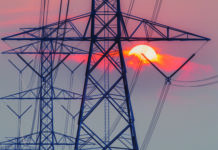 Following the Chancellor’s recent announcement that the government would be removing the CCL exemption from renewable electricity generation, sustainable energy has been at the top of the news agenda. Even through this time of great change in the industry, it is still important for UK businesses to drive to be more sustainable. But if a business chooses renewable power, how can it be sure where its electricity is coming from, and if it is really low carbon, asks Haven Power in this sponsored post.
Following the Chancellor’s recent announcement that the government would be removing the CCL exemption from renewable electricity generation, sustainable energy has been at the top of the news agenda. Even through this time of great change in the industry, it is still important for UK businesses to drive to be more sustainable. But if a business chooses renewable power, how can it be sure where its electricity is coming from, and if it is really low carbon, asks Haven Power in this sponsored post.
Why go renewable?
The future of the environment depends on us becoming more sustainable – and not just domestic consumers. An increasing number of businesses are seeking to operate more sustainably to lessen their impact on the environment. Not only does the environment benefit, it’s also great for business. Customers are placing a real value on suppliers who operate sustainably, and many base procurement decisions around environmental policies. Choosing renewable electricity is a great way of showing your customers that you are an environmentally responsible business.
However, with so many options available in the marketplace when it comes to electricity supply, how can businesses be confident that their electricity is legitimately renewable? That’s where the Renewable Energy Guarantees of Origin (REGO) scheme comes in.
What is a REGO?
Any business wanting to take electricity from a renewable source needs to be aware of the Renewable Energy Guarantees of Origin (REGO) scheme, administered by Ofgem. This scheme was established to promote and increase the contribution of renewable energy sources to electricity production across the EU.
Helpfully for businesses, the REGO certifies whether electricity has been generated from eligible renewable sources, great news for both businesses and their customers. Electricity backed by REGOs can come in many forms, from wind and solar to tidal. Perhaps less well known, but presenting a truly viable future for renewable electricity, is Biomass Renewable Electricity (BRE).
Biomass Renewable Electricity
Biomass is made from organic, plant-based material sourced from forests and forest residues, agricultural residues and dedicated energy crops that are not suitable for other uses, such as construction. Using biomass renewable electricity is just one way businesses of all sizes can decrease their carbon footprint and help tackle climate change.
As part of the Drax Group, Haven Power sources the majority of its power from Drax Power, which is well advanced in its transformation into a predominantly biomass-fuelled generator. Drax is, in fact, the single largest renewable energy generator in the UK. Drax’s sustainably sourced biomass has a carbon footprint which is 86% less* than the coal it is replacing. Drax’s biomass conversion is Europe’s largest decarbonisation project to date, and will save around 12 million tonnes of carbon per year** – which, in emissions, is equivalent to taking 10% of the UK’s cars off the road.
The renewable biomass electricity that Haven Power supplies can be fully-backed by biomass REGOs, meaning customers can be assured that their electricity is fully renewable. And, because biomass is not weather-dependent it ensures a secure and consistent supply of electricity. As a supplier that prides itself on transparency and openness, Haven Power fully supports the REGO scheme and positive impact it is having on a sustainable future.
If you would like to discuss sustainable electricity options, regulatory change or business electricity supply, the experts from Haven Power will be attending this year’s Energy Event at the Birmingham NEC, 15-16 September. Visit stand F70-G69 to speak to the team, and don’t forget to play Haven’s new online game, Haven Power Dash, for the chance to win an iPad Mini.
*Carbon emissions are calculated using Ofgem’s solid biomass and biogas carbon calculator
**Drax biomass supply report February 2015
Related articles:
Drax and Infinis seek Judicial Review over Osborne’s CCL grab
Osborne axes CCL exemption, promises review of ‘alphabet soup’ of energy taxes
CCL exemption will add eight figures to energy bills warn TPIs
Click here to see if you qualify for a free subscription to the print magazine, or to renew.
Follow us at @EnergystMedia. For regular bulletins, sign up for the free newsletter.



